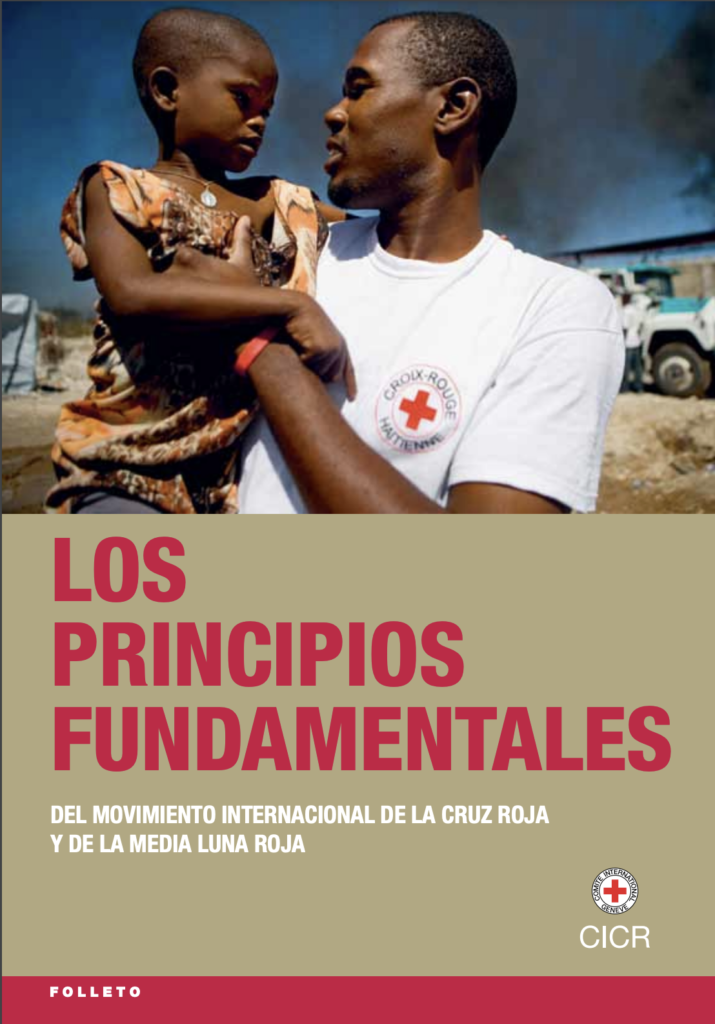The Intervention of the Venezuelan Red Cross by the Constitutional Chamber: Another Step in Authoritarian-Populist Constitutionalism

Source: CICR
*
In decision No. 1057, dated August 4, 2023, the Constitutional Chamber of the Supreme Court of Justice ordered the intervention of the Venezuelan Red Cross. Tania D’Amelio, who the United States Government sanctioned for her contribution to undermining constitutional democracy in Venezuela, drafted the decision.
This decision is another example of the Constitutional authoritarian populism imposed in Venezuela, primarily through judgments of the Constitutional Chamber. As recently highlighted by Allan R. Brewer-Carías, the Constitutional Chamber has played a crucial role in dismantling constitutional democracy through authoritarian measures disguised under a veneer of constitutionality. Hence, the need to analyze this decision beyond its formalities.
**
On August 2, 2023, the Public Prosecutor -illegitimately appointed in 2017 by the invalid constituent national assembly- filed a lawsuit before the Constitutional Chamber to protect collective rights against the “President and National Board of Directors of the Venezuelan Red Cross.” The action was allegedly taken to defend the Red Cross workforce and safeguard the humanitarian work of the International Red Cross and Red Crescent Movement.
Two days later, the Constitutional Chamber admitted the lawsuit and issued a precautionary measure, ordering the “comprehensive and diverse restructuring of the Venezuelan Red Cross with the participation of Venezuelan society sectors.” For this purpose, the Chamber created an “ad hoc restructuring board,” appointing its president and establishing the guidelines under which the board will carry out the restructuring, all under the control of the Chamber.
This decision embodies all the characteristics of authoritarian-populist constitutionalism. On the surface, the intervention of the Red Cross appears to follow constitutional procedures, mainly through a precautionary measure issued by constitutional justice. Additionally, the intervention is justified to protect the people and their humanitarian needs.
However, behind this facade of constitutionality lies the abusive and authoritarian nature of this decision, which represents yet another step in recent measures taken for the political control of civil society.
***
The first element that demonstrates the abuse is the misuse of the judicial remedy to protect collective rights. This remedy was designed to protect rights vested in a group or collectivity, similar to a class action. In this case, though, the Constitutional Chamber has used this remedy to supposedly protect certain allegedly violated labor rights, according to complaints filed before the Public Prosecutor’s Office.
But these alleged labor complaints were not processed through ordinary mechanisms, nor were they subjected to procedures that guarantee the right to defense for those accused. Hence, these complaints do not support a lawsuit to protect collective rights.
Secondly, the precautionary measure issued violates procedural principles, as it is not a temporary and reversible measure. In reality, the preventive measure resolves the merits of the controversy since it definitively ordered the intervention of the Red Cross. This intervention was imposed without consultation, in disregard of due process.
Thirdly, the Constitutional Chamber abuses its precautionary power by ordering the intervention of the Venezuelan Red Cross, which does not belong to the public sector. In the past, the Chamber has also abused its power by ordering the judicialization of political parties. In summary, this precautionary power advance on the intervention of private organizations outside the public sector.
Fourth and lastly, the political intervention of the Venezuelan Red Cross disregards the principles that govern the International Red Cross and Red Crescent Movement, which are based on International Humanitarian Law.
As highlighted by the chief legal office of the International Committee of the Red Cross, to fulfill its humanitarian mandate, the Red Cross enters into status agreements with the countries where it operates, protecting the institution and granting it the necessary autonomy to comply with its fundamental principles. In Venezuela, this status is recognized in the Law on the Protection of the Name and Emblem of the Red Cross.
The decision of the Constitutional Chamber violates this status and fundamental humanitarian principles. Specifically, the decision breaches the principles of impartiality and neutrality, as the Red Cross’s actions are now controlled by a Venezuelan Government Branch, namely the Constitutional Chamber.
This violation of principles becomes more severe considering the lack of autonomy and independence of the Constitutional Chamber, which turns it into a political tool of the Government of Nicolas Maduro. Consequently, beyond appearances, the Venezuelan Red Cross now operates under the control of the Maduro Government through the Constitutional Chamber, which supervises the arbitrary restructuring procedure.
****
One of the features of the authoritarian-populist deviation in Venezuelan Constitutional Law is the gradual elimination of the separation between civil society and the State, showcasing clear totalitarian tendencies. Recently, there have been threats to politically control non-governmental organizations, with legal formalities used to simulate the authoritarian nature of this threat, in another example of autocratic legalism, according to the term coined by Javier Corrales. Other authoritarian regimes, such as Nicaragua, have followed a similar path.
As pointed out by the NGO Accesso a la Justicia, the judicial intervention of the Venezuelan Red Cross is another chapter in the attempt to suppress the separation between civil society and the State, creating quasi-state entities that appear to be part of civil society but operate under political control. What is particularly grave in this case is that this political control has been exercised over the Red Cross, openly violating its humanitarian nature.
Considering the conditions set out in decision No. 1.057, the Venezuelan Red Cross is now incapacitated to fulfill the humanitarian mandate of the International Red Cross and Red Crescent Movement, becoming, in practice, another instrument of the Nicolas Maduro regime.